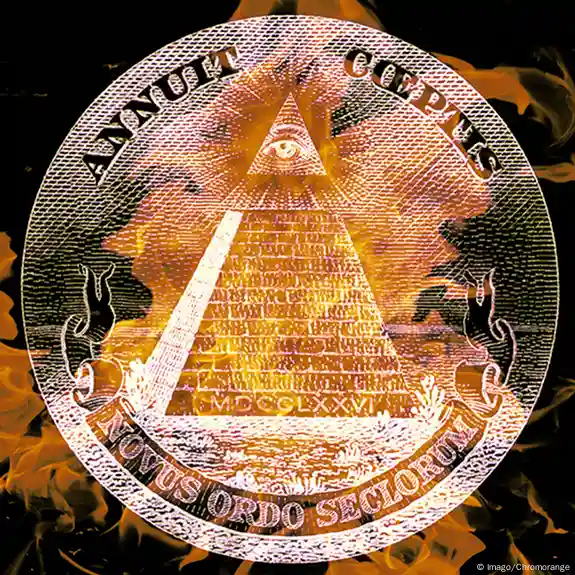Your cart is currently empty!

“Conspiracy Theory”
The term “conspiracy theory” is often used to dismiss and discredit certain narratives without proper engagement. The meaning has been confused through its misuse as a stand-in term for “a falsehood” or “a lie” in attempts to control narratives in the public discourse. Lets use critical thinking skills to derive a denotatively correct association and discern why the term has been abused in such a manipulative way.
Understanding the Original Meaning
To understand why the term “conspiracy theory” has lost its significance, we must first understand its original meaning. The term is composed of two words:
- Conspiracy: This denotes a secret plan by a group to commit unlawful or harmful acts.
- Theory: This refers to an idea used to explain a situation or justify a course of action.
Thus, “conspiracy theory” originally meant a hypothesis about a secret plan involving unlawful or harmful activities.
The Reality of Conspiracies
Conspiracies are a common part of everyday life. They occur in various contexts, such as:
- Corporate Behavior: Companies may conspire to avoid regulations through covert activities.
- Political Lobbying: Executives might work with lobbyists to influence politicians through “gifts” rather than transparent donations.
- Criminal Activities: Groups of criminals often conspire to identify and exploit their next victim.
These examples illustrate that conspiracies are not extraordinary; they are routine aspects of societal dynamics.
The Modern Misuse of “Conspiracy Theory”
Over time, the term “conspiracy theory” has been misused and twisted. It is frequently employed to imply falsehoods or malicious intent, which is a significant departure from its original meaning. This misuse serves to control narratives and delegitimize certain ideas without engaging with them substantively.
Evidence of Misuse
- Watergate Scandal: Initially dismissed as a conspiracy theory, it was later proven true, highlighting the potential misuse of the term.
- NSA’s Mass Surveillance: Also initially labeled a conspiracy theory, this was validated, showing that dismissing such theories can delay the recognition of important truths.
Harmful Effects of Dismissing Narratives
- Stifling Critical Thinking: By dismissing narratives without proper engagement, critical evaluation and intellectual growth are hindered.
- Undermining Open Discourse: This practice suppresses open dialogue and the exchange of diverse perspectives, fostering polarization.
- Impeding Truth-Seeking: Ignoring legitimate evidence supporting alternative narratives obstructs the discovery of truth.
Grammatical Incorrectness and Denotative Departure
The modern use of “conspiracy theory” often diverges from its denotative meaning, leading to grammatical incorrectness.
- Original Meaning: A theory about a secret plan by a group to commit unlawful or harmful acts.
- Modern Usage: Often used to suggest an idea is inherently false or malicious.
This incorrect usage diminishes the term’s accuracy and relevance.
Adopting a Denotatively Correct Association
Given its distorted use, the term “conspiracy theory” has become meaningless. To foster a more informed and nuanced understanding of issues, it is crucial to adopt a denotatively correct association. Here’s why this approach is essential:
- Critical Evaluation: Engage with narratives based on their merits and evidence rather than dismissing them due to a label.
- Open Discourse: Encourage open dialogue and the exchange of diverse perspectives to foster understanding and reduce polarization.
- Truth-Seeking: Evaluate all evidence thoroughly, regardless of the narrative, to uncover the truth.
TL:DR
The term “conspiracy theory” in its modern use has become meaningless. It is often employed to dismiss and discredit narratives without substantive engagement. This misuse stifles critical thinking, undermines open discourse, and impedes truth-seeking. To promote a more informed and nuanced understanding of issues, it is essential to adopt a denotatively correct association with the term. Engage with narratives based on their merits and evidence, fostering a culture of open dialogue and thorough evaluation.
Spotting Media Manipulation
For more information on how to spot media manipulation, recognize when terms are being used to manipulate you and overcome media bias, we have a great informational article on an effective strategy for deriving truth from narratives promoted in the news here
Read More
- The Watergate Scandal:
- Bernstein, Carl, and Bob Woodward. All the President’s Men. Simon & Schuster, 1974. Link to Source
- “Watergate Scandal.” Encyclopædia Britannica. Link to Source
- NSA’s Mass Surveillance:
- Greenwald, Glenn. No Place to Hide: Edward Snowden, the NSA, and the U.S. Surveillance State. Metropolitan Books, 2014. Link to Source
- “NSA Surveillance Exposed by Snowden.” The Guardian. Link to Source
- The Reality of Conspiracies in Corporate and Political Contexts:
- Mayer, Jane. Dark Money: The Hidden History of the Billionaires Behind the Rise of the Radical Right. Doubleday, 2016. Link to Source
- “Lobbying and Corruption in Politics.” Transparency International. Link to Source
- Critical Thinking and Open Discourse:
- Nussbaum, Martha C. Creating Capabilities: The Human Development Approach. Belknap Press, 2011. Link to Source
- “The Importance of Critical Thinking.” Foundation for Critical Thinking. Link to Source
These sources offer a deeper understanding of the complexities and nuances involved in the use of the term “conspiracy theory” and why it is essential to adopt a denotatively correct association for the sake of open discourse.

Leave a Reply